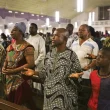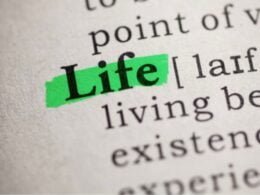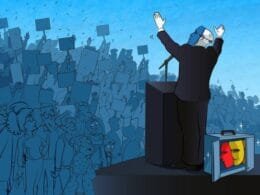
The virtue of work validates the idea that engaging in work is ethically responsible for building good character and dignity, which are essential building blocks for economic progress and stability in life. In most world cultures, work is seen as a way of achieving personal growth and success. In my own culture, the Yoruba ethnic group, there is a high premium on hard work to be taken seriously in society. An idle man or woman is mostly ignored, hated, and not respected among virtuous people or their families. However, to prevent burnout from work, balancing it with appropriate rest and leisure is necessary.
There is no other virtue that defines the quality and the beauty of our personhood as much as the concept of work and our attitude toward it. William J. Bennett brilliantly asked, “What are you going to be when you grow up?”[1] While this question sounds like an easy question, in true retrospection, it requires a lot of thoughtfulness to give a more responsible answer. When we were younger, we all had lofty and very high dreams of what we wanted to become. Something we would love to devote the remainder of our lives to that will dignify us as humans and make us feel important in the community. The question of what we are going to become when we grow up, for Bennett, is simply a question about the notion called “work.”
Work is the determining factor of a man’s self-worth and dignity. It is what everyone of us is often associated with as a description and understanding of our personhood. Bennett writes, “When you are asked, what is your work in the world going to be? What will be your works?”[2] He asserts that these are not fundamental questions about jobs and pay, but questions about life. In other words, what is the definition of your life?
Work, Bennett says, is applied effort. That is, whatever we expend our energy on for the sake of getting things done in our community or society. Work is not a career you learned in school; rather, it is a vocation you are called to fulfill. Bennett argues that work in this sense is not viewed as what we do for a living but what we do with our living.[3] Work, then, is the reason or purpose to which you were born. When you commit to this type of work, it is only a question of time; you are bound to succeed.
Bennett further iterates that the opposite of work is therefore not leisure or pleasure but idleness – that is, lack of cultivating a sense of investment in something worthwhile. So, Bennett proposes the idea of Aristotle, who argues that happiness resides in doing what one can take great delight in doing well. He, therefore, suggests that it is a massive blunder to identify enjoyment with mere amusement, relaxing, or being entertained. He concludes by declaring that life’s greatest joys are not what one does outside of his work but with the work of one’s life. Because he believes that those who have missed the joy of work, of a job well done, have missed something very important in life.[4]
Take a moment and reflect more deeply about your life; what are you born to do? What is your vocation or calling in life? Your honest answer(s) to this question are the first step towards a truly fulfilling life amid all these worldly uncertainties. Your vocation or calling in life is where you will make the most significant contribution to the progress of humanity without any sense of loss or incompleteness as a fully grown-up human being.
If you are passionate about writing and understand the power to shape culture through writing, please contact us immediately, and our representatives will walk you through how you can join our team of writers at the Africana Leadership Digest.
[1] William J. Bennett, The Book of Virtues, 347.
[2] William J. Bennett, The Book of Virtues, 347.
[3] William J. Bennett, The Book of Virtues, 347.
[4] William J. Bennett, The Book of Virtues, 347.












